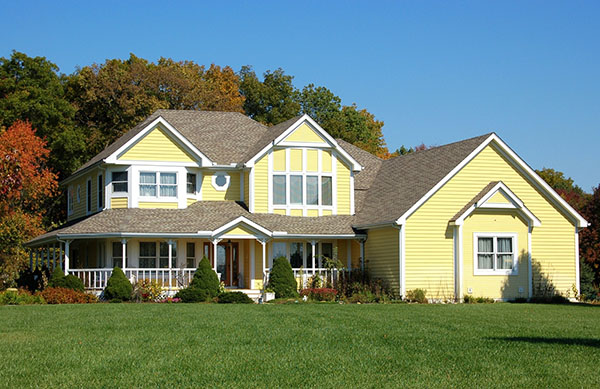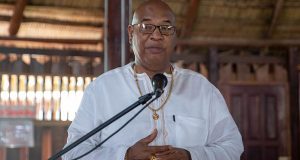More than 25 percent of Canadian households spend over the affordability threshold on housing, according to Statistics Canada’s National Household Survey.
The threshold, set by the Canadian Mortgage and Housing Corporation (CMHC), is defined as 30 percent of household income spent on shelter costs, which include rent or mortgage payments, property taxes, condo fees and utilities.
Almost 50 percent of householders under age 25 spend over that threshold. That situation will almost certainly worsen if interest rates begin to rise.
With the steady increase in Canadian housing prices showing few signs of slowing, how can Canadian householders avoid getting into situations where they are spending more than they can afford on housing? The key, according to Ontario Chartered Professional Accountants, is to clearly understand all of the costs related to home ownership.
Make sure you understand your full purchase cost
Many first time home buyers underestimate the initial total closing costs to purchase their home because they calculate it solely on the purchase price, without considering the other costs associated with the purchase.
“Many individuals receive their statement of adjustments from their solicitor prior to closing and they’re surprised by all the additional costs they need to pay,” says Irwin Choleva, CPA, CA, a partner with Shimmerman Penn LLP in Toronto. “These include land transfer taxes, title insurance, vendor prepaid property taxes and utilities, legal fees for their solicitor and, for many people, CMHC insurance – and then there are the moving costs. Home buyers who haven’t budgeted for these costs usually end up adding them to their mortgage, resulting in additional principal and interest costs throughout the mortgage term.”
Carefully consider your mortgage term
Interest rates have been at record low levels in recent years, and opinions vary widely as to whether those rates are likely to be maintained, drop lower, or increase in the near future. In this environment, the “right” mortgage term will likely vary from one individual to another depending on their financial circumstances and risk appetite.
“Many individuals have benefited from the current low variable interest rates,” Choleva says. “While the future of those rates is never certain, they believe there is only a minimal risk of a sudden increase. Other people prefer to lock into longer-term fixed rates to avoid any risk at all of a future rate increase for as long as possible.”
Homebuyers who stretched their budgets with the current low interest rates to buy more expensive properties than they otherwise would have purchased might be best to consider locking into a longer-term fixed rate. So, too, should any other homeowner whose budget would have difficulty accommodating any rate increase.
“Locking into a fixed mortgage rate helps protect against the risk of a rate increase,” Choleva says. “Even though a 10-year fixed rate is higher than the current variable rate, that rate is also comparatively low compared to 10-year rates of the past.”
Choleva advises homeowners to speak with a Chartered Professional Accountant to help determine whether they need the security of a fixed rate mortgage or can consider a using a variable rate mortgage which may reduce interest charges.
Understand the full cost to own your home
A mortgage is most homeowner’s single largest cost, but homeowners also need to be able to pay a variety of other monthly costs, including property taxes, utilities and other expenses.
“A worthwhile exercise for every homeowner is to sit down and figure out exactly how much they are spending – and what they are spending it on – each month,” recommends Jason Evans, CPA, CA, a partner with BDO LLP in Guelph. “Then they should calculate what each of those expenses is over a year. When people do that, they’re usually surprised to learn how much they are actually paying for things and they can take steps to reduce many of those costs.”
Some costs, such as property taxes, are beyond a homeowner’s ability to control. However, changing the thermostat or running electric appliances during off peak hours may reduce some utility costs. Greater savings can be achieved by eliminating discretionary expenses.
“People can be shocked to learn how much they spend on landscape maintenance and lawn care, for example, which is paid out of their after-tax income,” Evans says. “When they work out how much they have to earn to pay that after-tax amount, having a landscaper may no longer seem to be a necessity.”
Budget for repairs
Sooner or later, every homeowner needs to make significant repairs. If they haven’t budgeted for these unexpected costs, they usually finance them by borrowing additional funds to cover those expenses or end up using a credit card.
“Repairs are unavoidable,” Choleva says. “A major appliance breaks down, the furnace needs replacing or the roof leaks. Homeowners end up having to repair at least one thing or another usually every year and small, isolated repairs may be covered in the monthly budget. However, they will eventually encounter a major repair when it is least expected.”
Condominiums charge a monthly fee to cover annual repairs, and maintain a contingency fund to cover major capital expenditures in the future. Choleva recommends that homeowners also include a repair fund in their monthly budgets.
Don’t confuse renovations with repairs
Some homeowners consider renovations to be similar to repairs, even though they are not. Repairs are necessities – you need to fix the furnace because you’ll freeze without it. Renovations are discretionary changes – you put in a granite countertop because you want it but you could live without it.
Evans notes that many homeowners renovate because it is comparatively easy for them to borrow for renovations. “It’s not nearly as easy to pay back the money borrowed for renovations,” he says. “Using a line of credit with an interest rate of a half or one percent above prime may not seem like much, until you calculate how long it will take to repay that amount, plus the interest. And since that rate is variable, those costs will increase when interest rates go up.”
Consider renting
Some people may be better to rent than to own.
“Owning your own home is the North American dream,” Evans admits, “but renting is a viable option that should never be dismissed.”
Unlike homeowners, for example, renters don’t need to cover the costs to replace a roof or a furnace or even purchase appliances, and their monthly rental fee is usually less than a mortgage, and much less for a combination of mortgage and condo fees.
“Some people view homeownership as a forced savings plan – they pay their mortgage and other costs, but as real estate prices increase so does the value of their home,” Evans says. “With discipline, renters can achieve much the same thing if they save and invest the amount that represents the difference between their rental fee and what they would have to pay to cover the costs of owning a home.”
Brought to you by the Chartered Professional Accountants of Ontario.
 Pride News Canada's Leader In African Canadian & Caribbean News, Views & Lifestyle
Pride News Canada's Leader In African Canadian & Caribbean News, Views & Lifestyle





